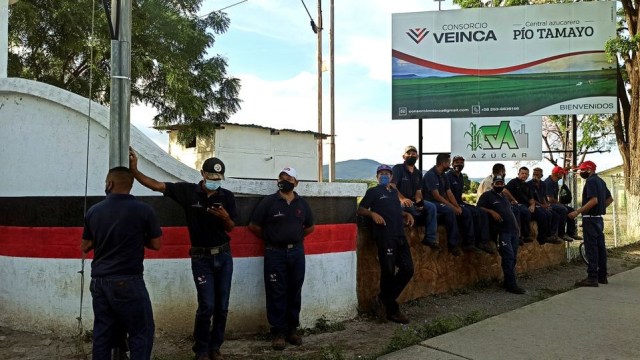
Venezuela’s government is allowing private firms to run at least 13 food companies that were nationalized a decade ago, according to a dozen people familiar with the situation, an effort meant to improve operations that suffered under state management.
By Reuters – Mayela Armas
Sep 13, 2021
The government of President Nicolás Maduro has maintained ownership of struggling firms that produce food ranging from corn flour and dairy products to canned tuna and seeds, but has licensed the operations to third parties in exchange for payment, according to the sources and documents seen by Reuters.
It is another instance of how Maduro has rolled back key elements of the state-led economic model of his predecessor Hugo Chávez, as part of economic liberalization that began in 2019 in response to U.S. sanctions and an economic collapse.
But the shift appears unlikely to dramatically change agricultural productivity following a decade of underinvestment and an economy in tatters from years of hyperinflation, economists.
“With the economic crisis, the management model is being changed to increase income or reduce state spending,” said economist Richard Obuchi, director of local consulting firm ODH.
“Government control has been losing its meaning.”
The private operators must assume payroll costs and finance investments, and allocate part of their output to state food distribution programs, the sources said.
One of the companies now under private administration is corn-flour manufacturer Industria Venezolana Maicera Pronutricos, which was nationalized 11 years ago.
This year, its operations were leased for five years to a firm called Alimentos El Maizal for the equivalent of around $16,000 per month, according to a copy of the agreement seen by Reuters.
These arrangements are covered by an “anti-blockade law” meant to revamp the economy in response to sanctions. The law was approved in 2020 by a parallel pro-government legislature called the National Constituent Assembly, which was dissolved in December.
State officials describe the arrangements as rentals of industrial facilities or sometimes as “strategic alliances.”
“Strategic alliances are created so that (private companies) are the ones who manage the (state-owned companies),” said Rafael Calles, governor of the agricultural state of Portuguesa, in an interview. “None of these alliances involve sales of shares. The company continues to be in the hands of the state.”
…
Read More: Reuters – Venezuela puts state food firms in private hands as socialist policies recede
…